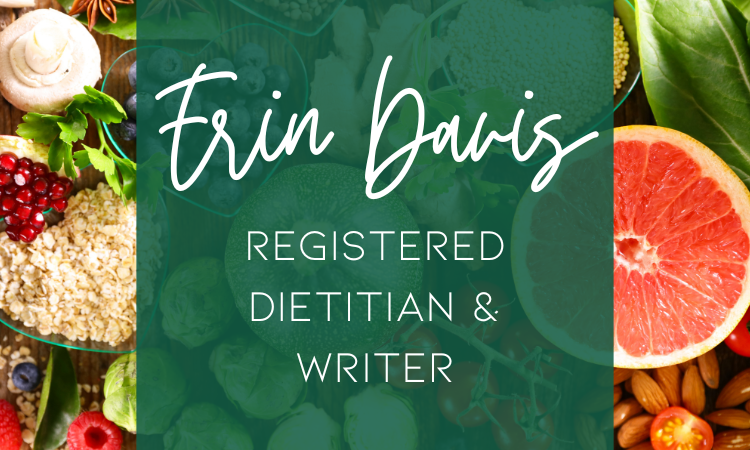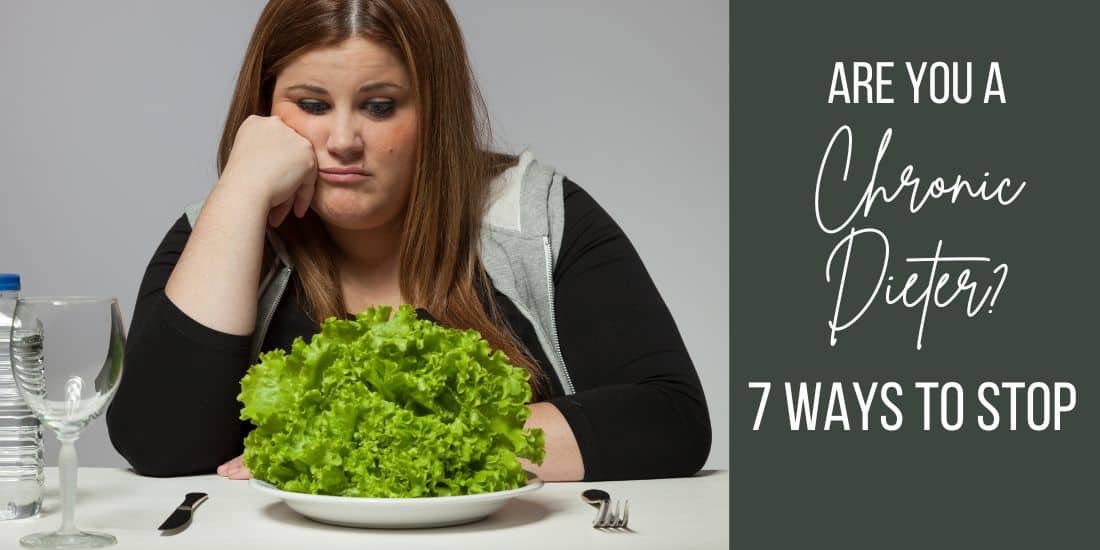A chronic dieter is someone who is constantly jumping from one restrictive diet to the next. Is that you?
Maybe you started with an innocent calorie-counting diet. Then, seeking improved health, you jumped on the low-carb bandwagon. After a while, paleo or clean eating sounded like a better option.
Perhaps you’ve done them all. There are so many from which to choose. Some are less restrictive than others, but most require some sort of deprivation.
Diets work. Until they don’t, right? We have the intention of losing weight, then we’ll be able to maintain the weight loss.

However, that step usually doesn’t happen. Which is why you have to continue dieting. I’ve had clients that have dieted for over 50 years.
The diets they followed were successful. They lost the weight. But they then gained it back. Plus some. Sound familiar?
If you’re new here, welcome! I’m Erin, an anti-dietitian. I help people take control of their eating and make complete peace with food. Imagine a day with no food-guilt. No Sundays gearing up for Monday’s new diet.
Even with health conditions like PCOS or diabetes, you can manage without restrictive diets.
So if you’re a chronic dieter and you are ready to finally stop, I’ve got you covered. Today’s post is all about long-term dieting consequences, roadblocks to quitting your dieting, and how to give it up for good.
Let’s jump in!
What is a chronic dieter?
As the name implies, a chronic dieter is always on a diet. Always trying to lose weight, a chronic dieter will often try every new diet with the hope that this one will work.
A chronic dieter may embrace low-carb for a while, then “fall off the wagon” with cheat days that turn into cheat weeks…that turn into cheat months.
Is that you? Seeking to reach your goal weight, will you try whatever it takes? Even giving up the foods you love?

Unfortunately, dieting often starts young. Way too young. Many of the clients I work with started dieting before they were teenagers.
Why? Comments about body size, parental influence (parents who dieted), and peer pressure are all reasons kids start restricting their food intake.
Sometimes diets have an innocent start. Perhaps you wanted to “clean up” your diet a bit. After some research, you’ve determined that half of the food you eat is “bad” and now when you eat them, you feel guilty.
Guilt over food often leads to binge eating. Binge eating leads to shame and over-restriction. The cycle is never-ending. Unless you stop dieting.
What happens if you diet long-term?
While you may think you’ll eventually reach your health goals with dieting, it rarely works that way.
Actually, some research suggests that dieting in normal weight people can lead to weight gain. So not only do you make yourself miserable with restrictive dieting practices, but you often get the opposite of your desired results.
Dieting long term often can lead to weight cycling. If you’ve dieted any length of time, you know what weight cycling is.
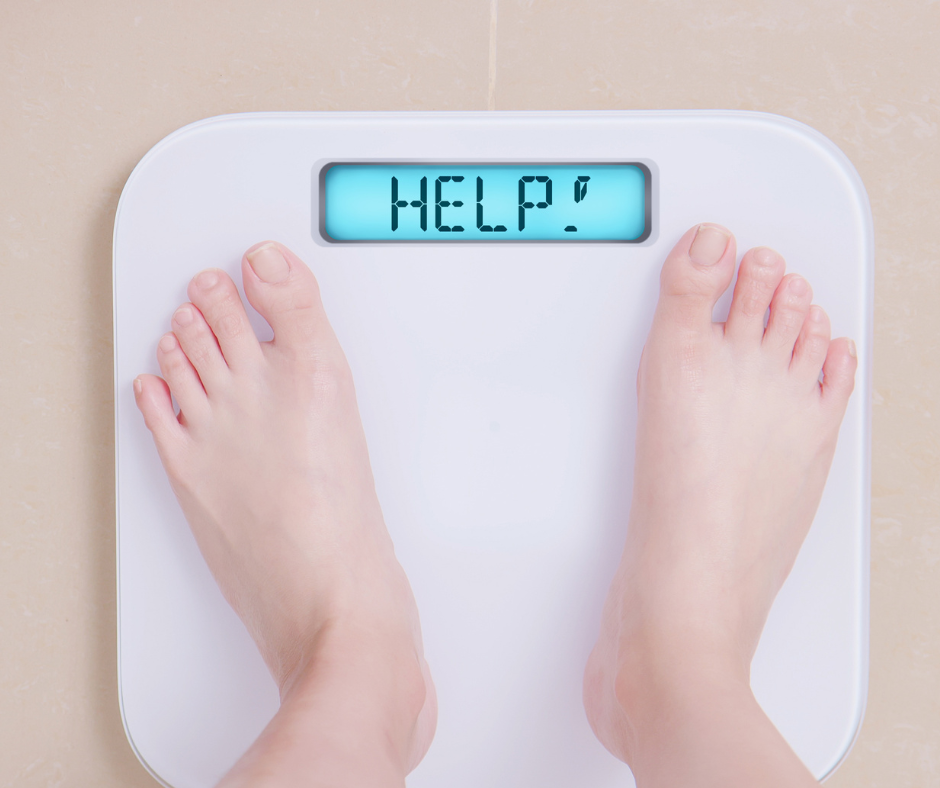
Have you lost the same 10-20 lbs over and over again? Then you’ve weight cycled, or yo-yo dieted. And having a closet full of clothes that don’t fit isn’t the only issue.
Weight cycling can lead to metabolic disruptions and cardiovascular stress. In addition, food restriction can lead to feelings of food addiction.
On top of that, dieting can increase the risk of eating disorders. For instance, orthorexia is linked with dieting. Likewise, binge eating disorder is more commonly found in those seeking to lose weight.
And let’s address mood and social health. What happens when you are on a restrictive diet and you’re invited out with friends? Do you avoid social situations that involve food?
Does your diet make you feel isolated? Consumed by thoughts of food? Disappointed about your results and progress? These are common feelings surrounding dieting.
Common fears that keep people dieting
Why do you keep dieting? Fears can often keep us stuck in a comfort zone. Even if that comfort zone isn’t actually comfortable.
Here are some common worries about ditching diets:
- Gaining weight
- Ruining your health
- Feeling like a failure
- Won’t stop eating
- You’ll only eat “junk food”
- You don’t know how to eat normally
You may feel like if you give up dieting, you’ll be giving up on your health. But here’s the thing—when you give up the idea of weight loss, you can place more focus on gentle, non-restrictive strategies to improve your health.
The good news is that when you give up dieting, your headspace will be cleared to focus on health behaviors that make you happy.
How do you stop dieting?
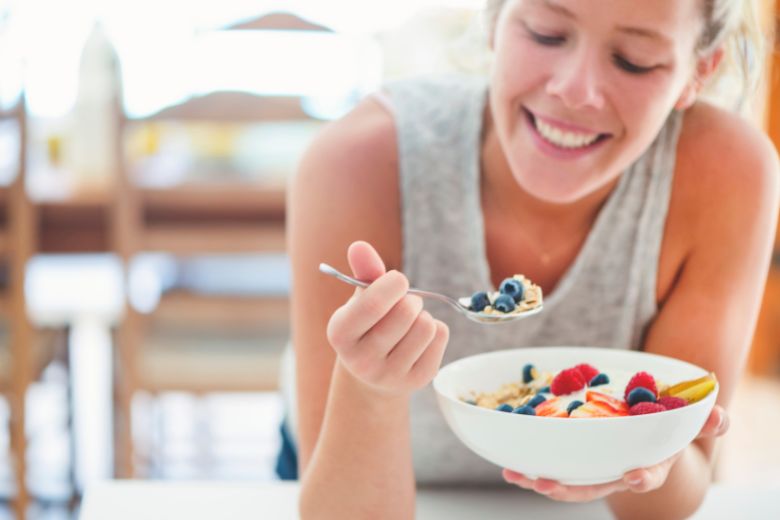
Once you’ve decided that dieting sucks, it’s time to give it up. Here are some tips for getting out of the diet trap, once and for all.
- Stop weighing yourself! Ditch your scale and focus on adding one health behavior at a time. You are so much more than your weight.
- Journal the things you like about your body. If you’ve spent a lifetime bashing your body, you’ll need to retrain those thoughts to be more content and grateful. Jot down the things your body has accomplished.
- Surround yourself with supportive people. It’s time to build your non-diet tribe. Find people that have common interests and hobbies, besides dieting.
- Trust your body. You’ve got the internal cues for hunger and fullness. You just need to find them again. Mindful eating exercises can help you regain awareness of your body.
- Get help. If you’ve dieted for years, it will take some time to undo that diet mentality. Don’t go it alone. Enlist the help of an anti-diet RD or counselor to walk with you every step of the way.
- Write down your diet history. One activity I like to do with my chronic dieter clients is to have them chart every diet they’ve tried, along with their starting weight and ending weight. It’s not meant to shame them, but to become aware of the ineffectiveness of dieting.
- Think about what you’ll gain from a restriction-free life. I want you to envision what your Mondays would be like if you weren’t punishing yourself with a diet. Picture eating your favorite foods, without guilt. Sound appealing?
Prioritizing nutrition without dieting
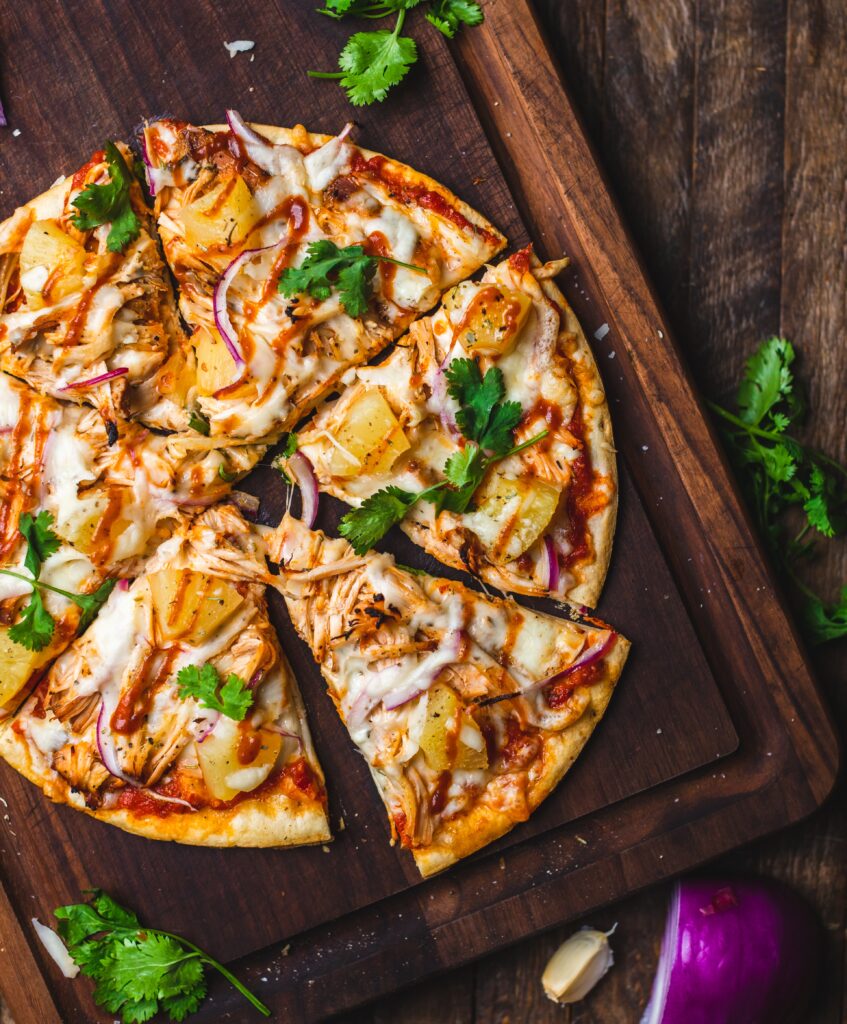
Please don’t think that I totally disregard the value of nutrition. What we eat is important. But you can eat foods that are nutrient-rich and are proven to promote health, without restriction.
How does that look? You basically make food choices that satisfy your cravings and nutrition needs. No food’s off-limits.
We know that diet patterns heavy in fruits and vegetables have many health benefits. I happen to like fruits and veggies, and I add them to my day whenever they fit.
If I’ve just exercised, I am going to purposely choose a carb that will refuel me. That’s often a banana because I like them.
I’ll have a salad at lunch (without concern about calories in my dressing and other toppings) so that my digestion is regular.
But if I don’t feel like a salad, I’ll eat something else. No big deal.
When deciding on breakfast, I make sure I have a balance of carbs, protein, and fat, so that I stay full longer, and I’m able to focus on our homeschool day. Not because a diet tells me so.
You can make simple swaps that don’t feel like deprivation. For example, I add creamer to my coffee, but I’ve switched from flavored creamers to organic half-and-half with maple sugar. Still sweet, but with fewer preservatives and processing.
Totally manageable. I still eat chocolate. And I still eat veggies. I love a good potluck or a meal at my favorite restaurant.
Are you ready to make peace with food? I’d love to help you stop your chronic dieting. Find joy in life without food guilt and punishment. You’ll be so glad you did!
Disclaimer: This information is intended as a self-help tool for your own use, at your own risk. My opinions do not reflect the values, thoughts, or opinions of the Academy of Nutrition and Dietetics or other professional health organizations.
About the author
Erin is a registered dietitian and diabetes educator with almost 20 years of experience. She specializes in weight-inclusive diabetes care and prevention, intuitive eating, fitness, and women’s health. She works as a consultant and writer in the health and wellness space. Erin is passionate about empowering people to manage their own health and to have peace with food.
